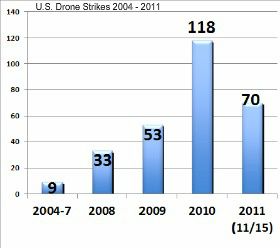It was announced by the White House that President Barack Obama will make a recess appointment of former Attorney General of Ohio, Richard Cordray to head the newly created Consumer Financial Protection Bureau (CFPB):
President Barack Obama installed Richard Cordray as head of the Consumer Financial Protection Bureau with a recess appointment today, testing the limits of his executive authority to fill the post without Senate approval.
Obama nominated Cordray to be the bureau’s first director in July, almost one year after enactment of the Dodd-Frank financial regulatory law creating the agency. Republicans blocked Cordray’s confirmation by the Senate last month. Putting him in the job today may set up an election-year court fight between the White House and Congress.
Even thought the Senate has been under Democratic control since 2006 when the tactic of pro forma session was first employed to keep President George W. Bush from making recess appointments to the bench, there have been questions by legal scholars about the constitutionality about their use. It has since been used to placate the Republicans in hopes of winning their cooperation, obviously to no avail.
Senate Majority Leader Mitch McConnell (R-KY) called President Obama move “arrogant”, saying that “Breaking from this precedent lands this appointee in uncertain legal territory, threatens the confirmation process and fundamentally endangers the Congress’s role in providing a check on the excesses of the executive branch.”
House Speaker John Boehner had a similar reaction calling the appointment an “extraordinary and entirely unprecedented power grab” by the president.
The legal precedent for these sessions is on very shaky ground. In a 1993 court case involving the Postal Service Board of Governors, Justice Department lawyers argued in court papers that presidents can make recess appointments when the Senate is out of session for more than three days.
The brief suggested that a president might lack that authority during shorter breaks. Pointing to the constitutional requirement that the Senate and House get one another’s consent before adjourning for more than three days, the Justice Department said the constitutional framers might not have considered shorter recesses to be significant.
“If the recess here were of three days or less, a closer question would be presented,” the Justice Department argued.
However, lawyers who advised President George W. Bush on recess appointments wrote that the Senate “cannot use sham ‘pro forma’ sessions to prevent the president from exercising a constitutional power.”
David Dayen at FDL points out the Constitutional argument that there is no time requirement in the Constitution for Congress to be in recess before the president can make recess appointments:
As for the judicial question on whether pro forma sessions count as keeping Congress in session, the 11th Circuit Court of Appeals ruled back in 2007 that “The Constitution, on its face, does not establish a minimum time that an authorized break in the Senate must last to give legal force to the President’s appointment power under the Recess Appointments Clause.” On the other side of this, Solicitor General Neal Katyal, in a 2010 case, argued that the Administration recognized that a 3-day recess was “too small,” in their understanding, to make appointments.
While the Republicans will very likely mount a court challenge, claiming past precedent, it may well fail since the president has the power to make recess appointments under Article II, Section 2 of the Constitution which states, “the President shall have Power to fill up all Vacancies that may happen during the Recess of the Senate, by granting Commissions which shall expire at the End of their next Session.” It can be argued that Congress is in recess when they gavel out at the end of each day or whenever there is no quorum, which goes to the constitutional argument about pro forma sessions.
The other issue is why didn’t he appoint Elizabeth Warren who is eminently more qualified than Cordray to head the CFPB? It is most likely because of objections from Treasury Secretary Timothy Geithner’s objections and her memo to the the state attorney general’s who are negotiating a settlement with the big banks over mortgage fraud.
Make no mistake, Obama is doing this now for purely political motivations. It emphases Republican obstructionism and as a ploy to win back the disenfranchised left wing of the Democratic Party, as well as, the Independent voters who believed in all his “hopey, changey” campaign rhetoric.


 Since taking office in 2009, President Obama has waged an increasing clandestine war using unmanned drones controlled by civilians members of the CIA. In a
Since taking office in 2009, President Obama has waged an increasing clandestine war using unmanned drones controlled by civilians members of the CIA. In a
Recent Comments